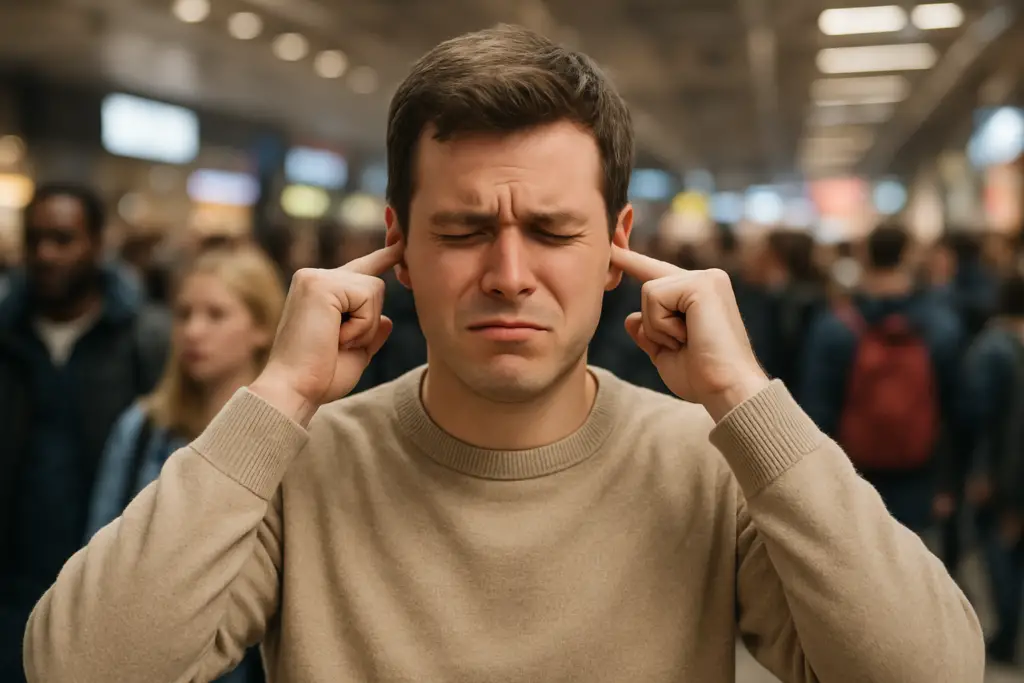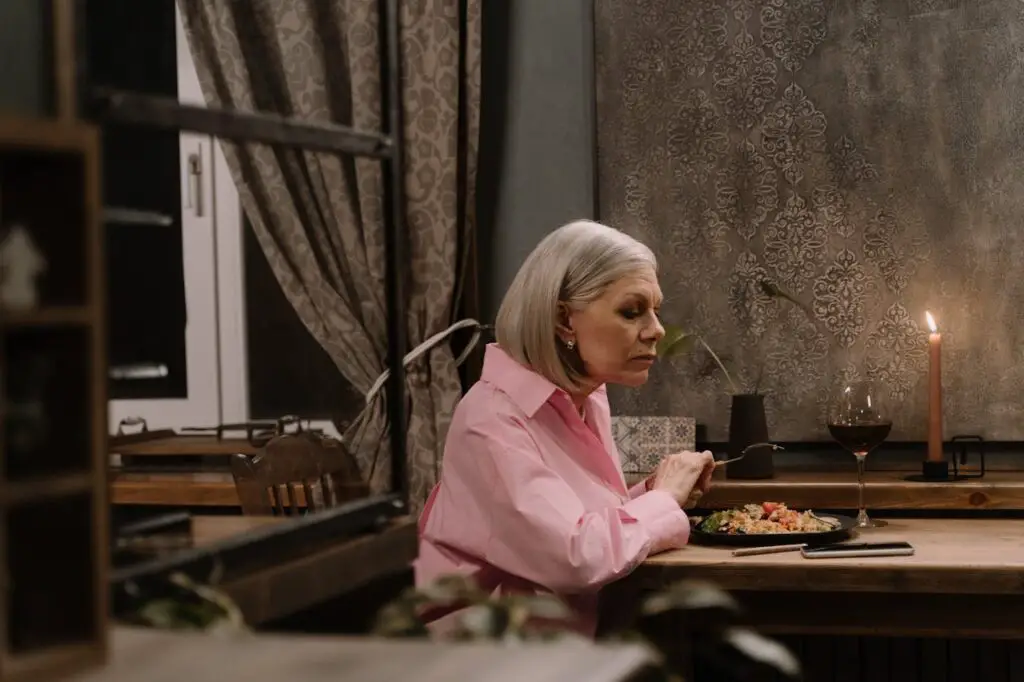10 Surprising Things You Start to Hate as You Get Older, According to Science

Getting older comes with its perks—wisdom, experience, and a stronger sense of self. But it also brings some unexpected shifts in what we enjoy or find tolerable. Suddenly, that loud concert you once lived for feels like an assault on your senses. Late-night dinners become more of a digestive gamble than a treat. It is not just about being grumpy or “getting old”—science shows that our brains, bodies, and emotional needs evolve with age, prompting us to reevaluate what brings joy versus what drains us. If you have found yourself losing patience for things you once loved, you are far from alone. In fact, research reveals that aging changes our preferences in very specific ways.
Here are ten scientifically backed things you are more likely to dislike as the years go by—some of them might surprise you.
1. Loud Noises and Crowded Places

As we age, our tolerance for noise and overstimulation tends to drop—and this is not just a personal quirk. Research published in the journal Frontiers in Psychology suggests that older adults experience changes in auditory processing, making it harder to tune out background noise. This means environments like packed restaurants, loud bars, or music festivals can quickly go from fun to overwhelming. Our brains become less adept at filtering out distractions, leading to cognitive fatigue and stress. Many older adults begin to actively avoid these environments in favor of quieter, more controlled settings that allow for real conversation and peace of mind.
2. Staying Up Late

Remember when starting your night at 10 PM felt perfectly normal? As we grow older, the very thought of staying up late can feel exhausting. This change is largely due to shifts in our circadian rhythms—our internal body clocks—which start to favor earlier bedtimes and wake-up times. According to the National Sleep Foundation, aging adults often experience “advanced sleep phase syndrome,” making it easier to fall asleep and wake earlier. This shift also makes staying up late more difficult and less enjoyable. Late nights tend to disrupt sleep quality, which becomes even more essential to cognitive function, mood, and physical health as we age.
3. Unnecessary Drama

Life is simply too short for high-maintenance relationships and unnecessary conflict. As people age, they become less tolerant of emotional drama, whether it is workplace politics, social media spats, or family feuds. A key reason for this is explained by socioemotional selectivity theory, which suggests that older adults become more focused on emotionally rewarding experiences and relationships. According to a 2020 study in the Journal of Gerontology, older individuals prioritize peace, authenticity, and emotional stability. They are more likely to walk away from toxic dynamics and invest in relationships that bring joy, not stress.
4. Heavy Meals and Greasy Foods

A burger and fries at midnight? That might have sounded like heaven in your twenties. But in your forties and fifties, heavy meals often come with consequences—indigestion, acid reflux, and next-day sluggishness. As metabolism slows and the digestive system becomes more sensitive, rich or greasy foods start to feel more like punishment than pleasure. A study from the American Journal of Gastroenterology confirms that older adults are more prone to gastrointestinal issues like GERD and slower digestion. This often leads to a natural shift in diet, with many opting for lighter, whole-food meals that are easier on the stomach and promote long-term health.
5. Shopping in Packed Malls

Once a fun weekend outing, shopping in busy retail centers becomes increasingly unappealing with age. The noise, the crowds, the long lines—what once felt energizing now feels like a chore. A 2023 survey by AARP found that older consumers are significantly more likely to prefer online shopping, citing convenience, speed, and reduced stress as top reasons. The modern mall experience—with its overstimulation and endless options—can be mentally draining. Many adults over 40 report preferring smaller local shops or shopping from the comfort of home where they can take their time and avoid the chaos.
6. Chasing the Latest Tech Trends

While many older adults are quite tech-savvy, they are also more selective about what technology they adopt. According to data from the Pew Research Center, people over 50 tend to value ease of use, reliability, and real-life functionality over novelty or trendiness. Learning a new app or device just for the sake of it often feels like more trouble than it is worth. Frequent software updates, complicated interfaces, and shifting user expectations can quickly become frustrating. This age group wants technology to enhance their lives, not complicate them—so if a gadget or platform is not intuitive or helpful, they are more likely to skip it altogether.
7. Small Talk and Surface-Level Friendships

As we grow older, our social circles may shrink—but they also tend to deepen. Many adults over 40 begin to lose patience for surface-level friendships and meaningless small talk. This change is rooted in the understanding that time is finite, and emotional energy should be spent wisely. Research from Stanford University shows that older adults prioritize quality over quantity in relationships, often focusing on meaningful, emotionally satisfying connections. They are more likely to phase out casual acquaintances or social obligations that feel performative and instead invest in people who genuinely enrich their lives.
8. Uncomfortable Clothing and Footwear

Style is important, but comfort begins to reign supreme as we age. This is especially true when it comes to footwear and fitted clothing. With the rise of foot problems like bunions, plantar fasciitis, and arthritis in adults over 50, wearing high heels or tight shoes becomes less about fashion and more about physical endurance. A study published in the Journal of Foot and Ankle Research confirms that foot pain increases significantly with age, making supportive footwear not just a preference but a necessity. The same goes for clothing—tight waistbands, restrictive materials, and overly tailored fits often give way to looser, breathable, and more forgiving garments.
9. Unpredictability and Chaos

When you are young, flying by the seat of your pants can feel like an adventure. But as you age, spontaneity can often start to feel like unnecessary stress. With greater responsibilities, health considerations, and less tolerance for disorganization, many adults develop a strong preference for structure, routine, and predictability. This desire for control is not about being rigid—it is about minimizing stress and maximizing efficiency. Studies in behavioral psychology suggest that older adults are more sensitive to uncertainty, which can contribute to anxiety and cognitive overload. Planned events, familiar routines, and clear expectations offer a sense of stability that becomes increasingly valued.
10. Being Constantly Plugged In

Between work emails, group chats, and social media notifications, modern life can feel like a never-ending stream of information—and many older adults are increasingly opting out. Digital fatigue is a growing phenomenon, and according to a 2022 Gallup poll, people over 50 are among the most likely to report feeling overwhelmed by constant connectivity. Many begin setting boundaries with technology, whether it is turning off notifications, logging out of social media, or designating screen-free hours at home. The goal is to reclaim attention, reduce stress, and create space for real-world experiences—things that become more valuable as time feels increasingly precious.
Final Thoughts

Getting older is not just about physical changes—it is also a profound emotional and psychological evolution. The things you once tolerated—or even loved—can become intolerable as your priorities, values, and needs shift. And that is not a bad thing. In fact, letting go of loud parties, toxic friendships, uncomfortable fashion, and chaotic schedules often makes space for more meaningful, peaceful, and fulfilling experiences. If you have noticed yourself becoming more selective about how you spend your time and energy, you are in good company. These shifts are not just personal—they are backed by science, and they are a sign of emotional maturity and self-respect.
Leave a Reply